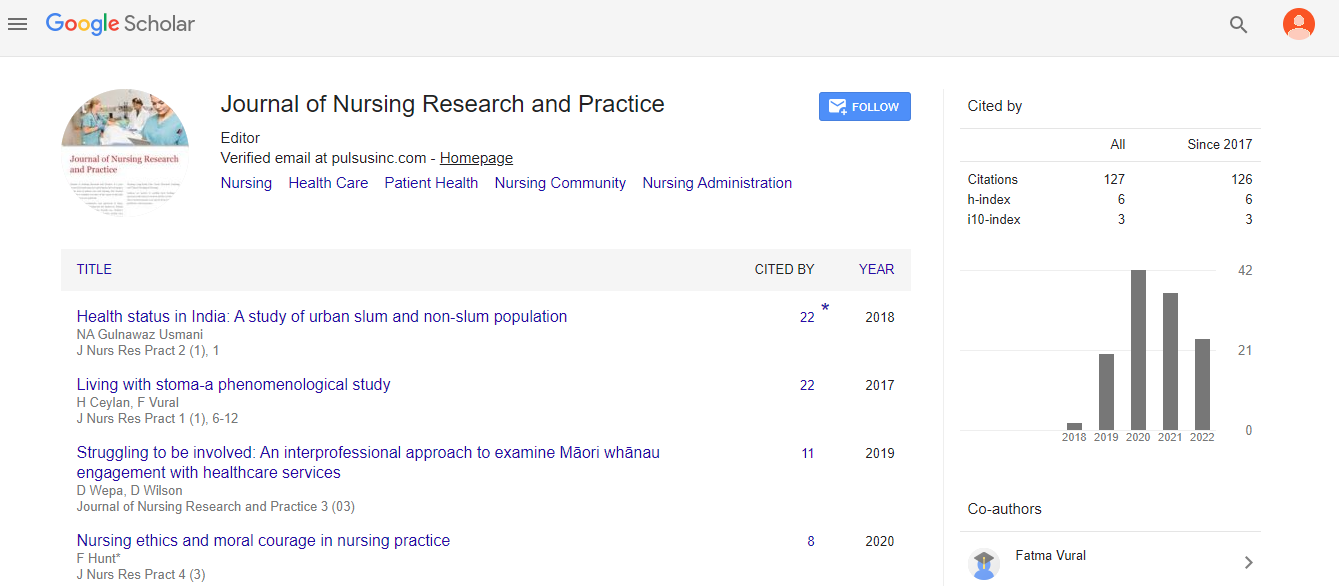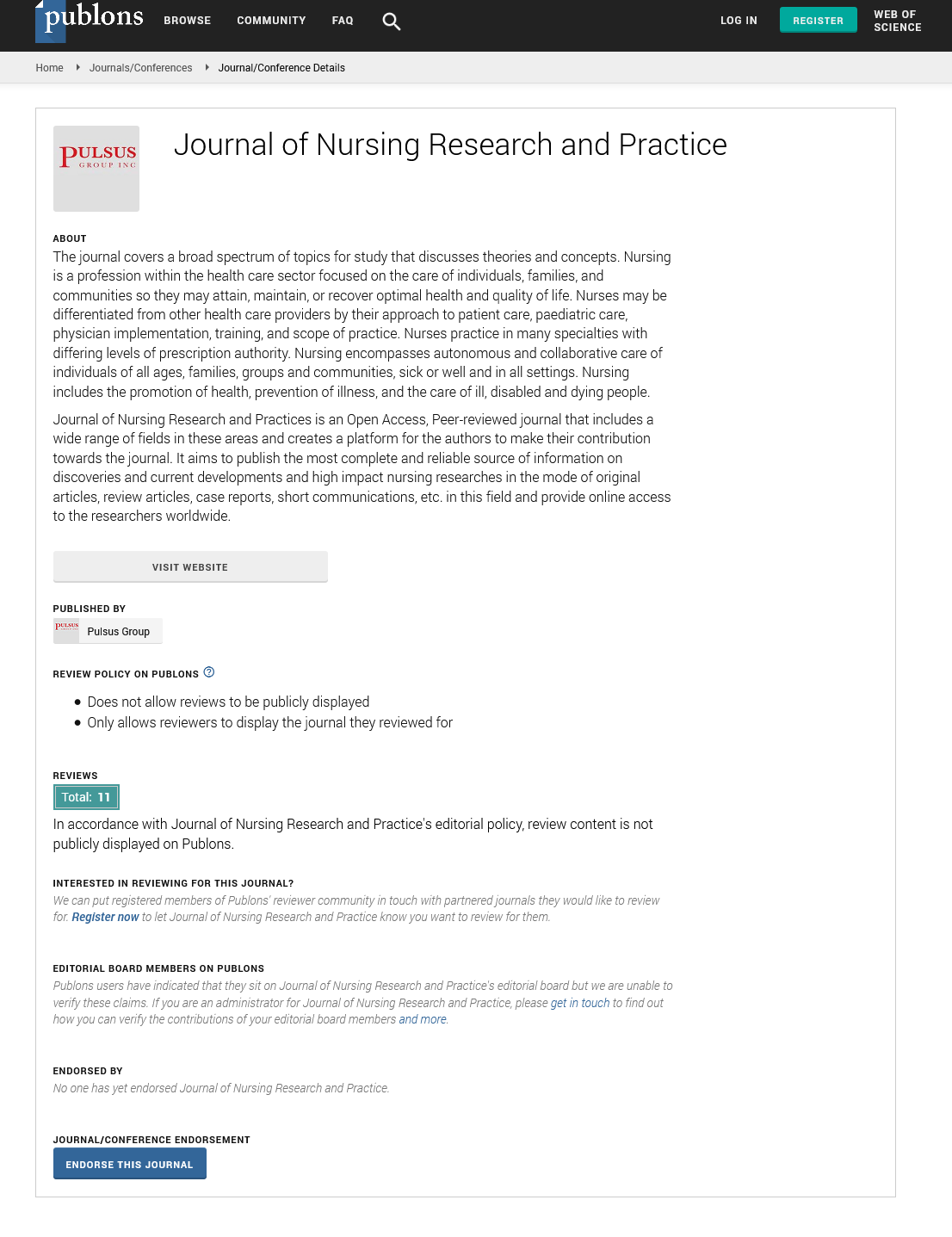Who cares also deserves care: The action to care in oncology nursing
Received: 01-Feb-2018 Accepted Date: Feb 07, 2018; Published: 17-Feb-2018
Citation: Organist L. Who cares also deserves care: The action to care in oncology nursing. J Nurs Res Pract. 2018;2(1):21.
This open-access article is distributed under the terms of the Creative Commons Attribution Non-Commercial License (CC BY-NC) (http://creativecommons.org/licenses/by-nc/4.0/), which permits reuse, distribution and reproduction of the article, provided that the original work is properly cited and the reuse is restricted to noncommercial purposes. For commercial reuse, contact reprints@pulsus.com
Breast cancer has been reaching more and more women young and become the later discovery when in fact it precocious and due to gravity should be with that tumor have appeared, come because calling so the hospitalization, you can calling lead in a recurring way the internalization. In this way the nursing professional who not only theoretically is closer to the assistance, more of the reality, with which it is inserted ‘s patient, you must know how to deal with emotions, anguish, fears, distancing the social context and even conflicts that the bearer of breast cancer spends.
These reasons demonstrate the need to care for the caregiver (nursing professional) even so that he can watch the client in a humanized way. in oncology, for example, the approach to pain and customer comfort should happen in parallel with the use of the most recent advances therapeutic. This It requires more attention from the nursing body [1].
Taking into view, the following objectives:
1) Provide the reflection of the professional posture of caregiver, working their defense mechanisms, their resistances and their Esteem;
2) Identify the stresses that affect the oncology nursing professionals, which are many, but that each professional You understand them, and you face them in a different way.
The methodology used FHi of the descriptive-reflexive type that is used to describe phenomena, identify problems and justify conditions, compare and evaluate what others are developing in situations for future plans and decisions. As a result, it was evident that the workload interferes in the family relationships and in the private life of these professionals, due to the reduction of free time. And in general, it turns out that the nurse often come developing burnout syndrome due to not knowing how to deal with conditions submitted in your day to day (desktop, disorder if the external issues home, family, finance, etc...)
The consequences of stress and Burnout have a negative effect on organization, For the individual and for his profession.
As quoted by the authors (Diehl, Figlie), stress and burnout syndrome it’s bad for both of us. For an institution that loses an already trained, competent and skilled professional. And for the professional himself who most often finds “valve” exhaust with use of disordered alcohol, controlled medication, food in overkill (obesity), breaking any kind of relationship.
Through a support/therapeutic group can strengthen the nurse relationship and Careful. A time que the health-mental issue has great sizing in the present day; DiMinu would the absenteeism, the physical and mental exhaustion, increases rIA self-esteem and auto control, motivation.
It is worth pointing out the importance of monitoring through a clinical and psychological evaluation, for the professionals who are inserted in this context, mentioned above. To avoid removals and diseases in the future.
Completed going as nurses, in their relationship with the oncological client, recognize it as being special, fragile, insecure, requiring for their care a technical-scientific knowledge and a sensibility addressed to the human being involved there [2,3].






